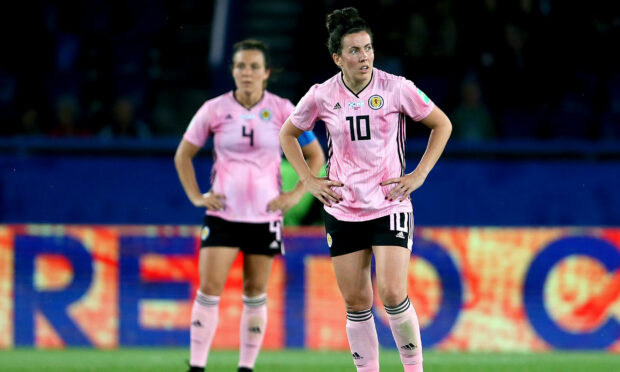Every sport is going to feel the knock-on effect of the coronavirus crisis in the coming months but some will suffer more than most.
Fifpro general secretary Jonas Baer-Hoffmann painted a worrying picture for women’s football when he warned it could be hit significantly harder than the men’s game.
There has been major momentum behind women’s football recently, particularly since last year’s World Cup, with huge increases in participation and attendances.
An increasing number of businesses were keen to sponsor teams and invest in the sport, while broadcast deals were slowly improving.
In Scotland there were real signals the game was about to move to the next level with Celtic and Rangers moving towards professional setups for their women’s teams.
Hearts have taken major steps to improve their women’s team and girls academy, while, closer to home, Aberdeen, promoted last season to SWPL 2, were also in the process of creating a team capable of competing in the Scottish top tier again.
Glasgow City, who have dominated Scottish women’s football for the last 13 years, were busy preparing for a Champions League quarter-final. Their tie with Wolfsburg was scheduled for March 25 before Scottish football was suspended indefinitely.
What could have been a perfect opportunity for the women’s game in Scotland to capture attention was lost.
The long-term damage caused by the coronavirus crisis to women’s football in Scotland and across the world remains to be seen but there will be a cost.
Unlike Glasgow City, the majority of professional women’s teams across Europe are attached to men’s teams and often dependent on funds raised through the men’s game.
That dependency could make women’s teams and their budgets vulnerable when clubs try to cope with the losses incurred by the pandemic.
The men’s game across the world will inevitably feel the financial repercussions of trying to pay players’ wages without matchday income for a prolonged period but the women’s game may not have the strong foundations to absorb such difficulties. Baer-Hoffmann’s concern is the businesses who have invested in women’s football may be unable to do so when the lockdown ends and sport eventually returns.
Women footballers do not enjoy the same financial security as their male counterparts – they are paid much less and the average length of a player’s contract is just over 12 months.
Fifpro, the players’ union, fears otherwise profitable and stable clubs could become insolvent if the game’s stakeholders do not act quickly.
Women’s football has made massive progress over the past few years but that could be quickly wiped out if the correct decisions are not made by the game’s governing bodies.
